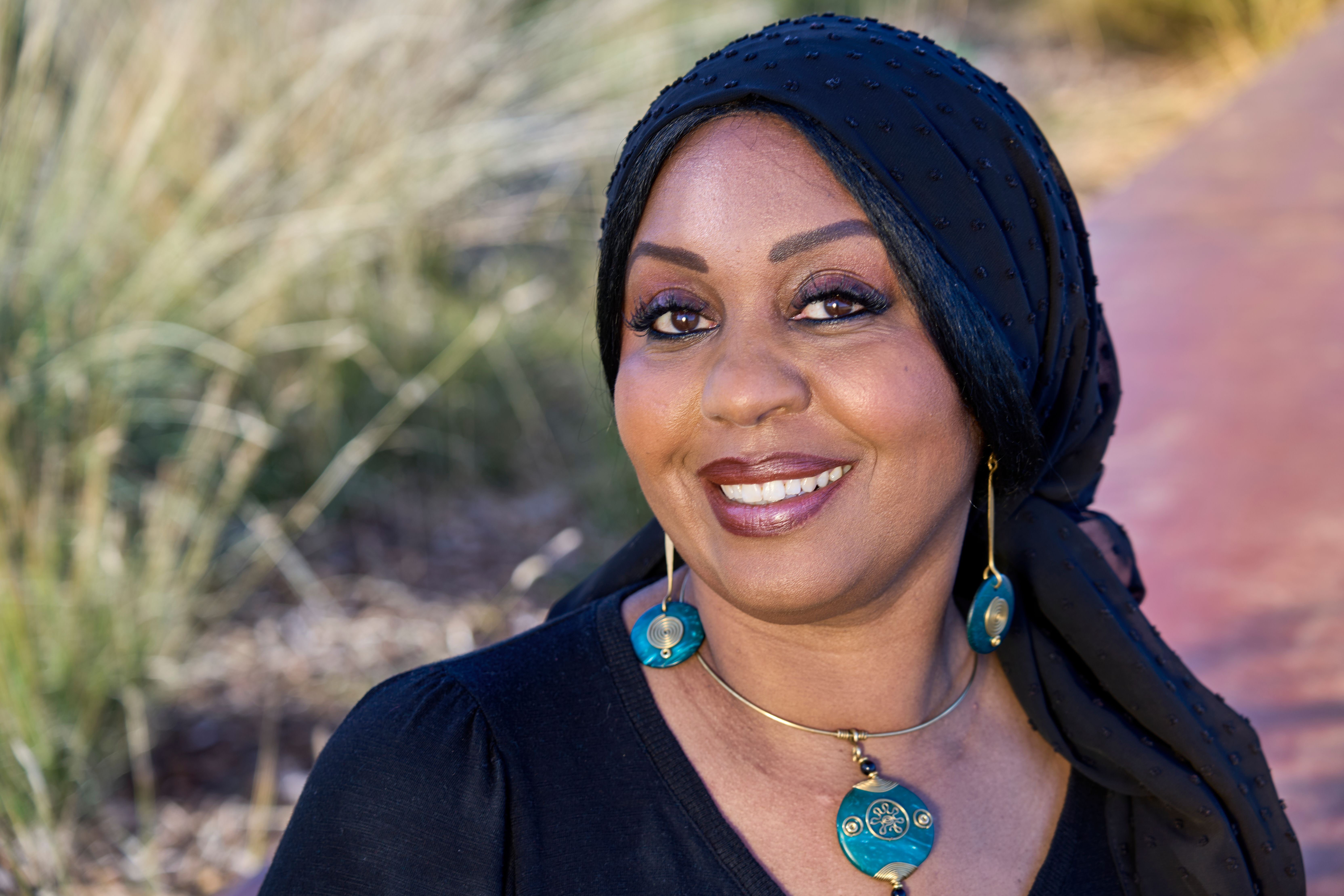I can still hear my uncle Elbagir’s voice saying 'Gaaaalu kan fi...", which means "once upon a time.."
His folk stories told to him by his grandmother- our great grandmother- Fatma, were like warm embers on a cool Sudanese night, flickering with magic, wisdom, and laughter. He would sit with us, eyes shining, in his jalabiyya, voice rising and falling with each character he embodied. With each story, my cousins and I were transported from our floormat where we sat eyes wide, to faraway places- villages where animals talked, rivers guarded by spirits, and kingdoms where the clever triumphed over the strong. These stories weren’t just entertainment, they were our history, our culture, our identity.
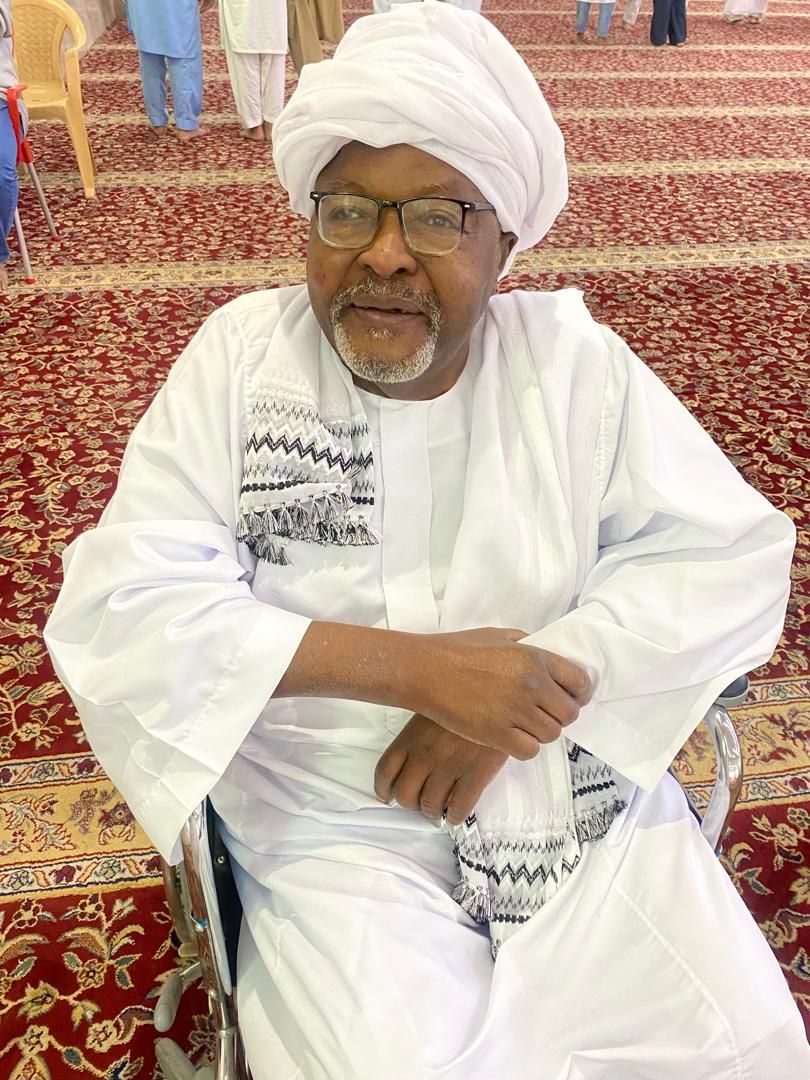
Uncle Elbagir. Source: Hanaa Baba
The Stories That Shaped Me
Like many bicultural diaspora kids, I lived in two worlds- home was very Sudani, then I stepped out into a very American world. In our house, my mother would tell me our folktales of Fatna Alsamha (Fatma the Beautiful), and Mohamed Elshatir -and I’d go to school and it was Goldilocks and the Three Bears, and Brer Rabbit. And when we would be visiting Sudan, I’d be immersed in a land where storytelling is woven into the fabric of everyday life.
We heard little tales, sayings, and fables as we played, as we drifted to sleep- they peppered our days from morning to night. And every Friday, my cousins and I would excitedly gather in our ‘hosh’- my grandmother’s yard, to hear what stories Uncle Elbagir would tell us that night after sunset.
They were stories from all ‘genres’ in the western sense. Some were funny, with foolish animals and goofy ghouls, while some were scary- with evil witches and hungry zombies. Some included little songs that we would all sing along to. And my uncle wouldn’t just tell these stories, he would perform them- creating sound effects and acting out all the characters theatrically. It was a show! Each story was memorable, and each story was carved into my memory.
Living in the U.S, I carried those stories with me, but quickly realized that outside our home, they weren’t told. Sudanese kids like me were growing up in a world where their heritage was unknown, where their stories weren’t reflected in books, TV, or school. That’s why, when I had my own children, I was keen on telling them our folktales- because it was their heritage, too.
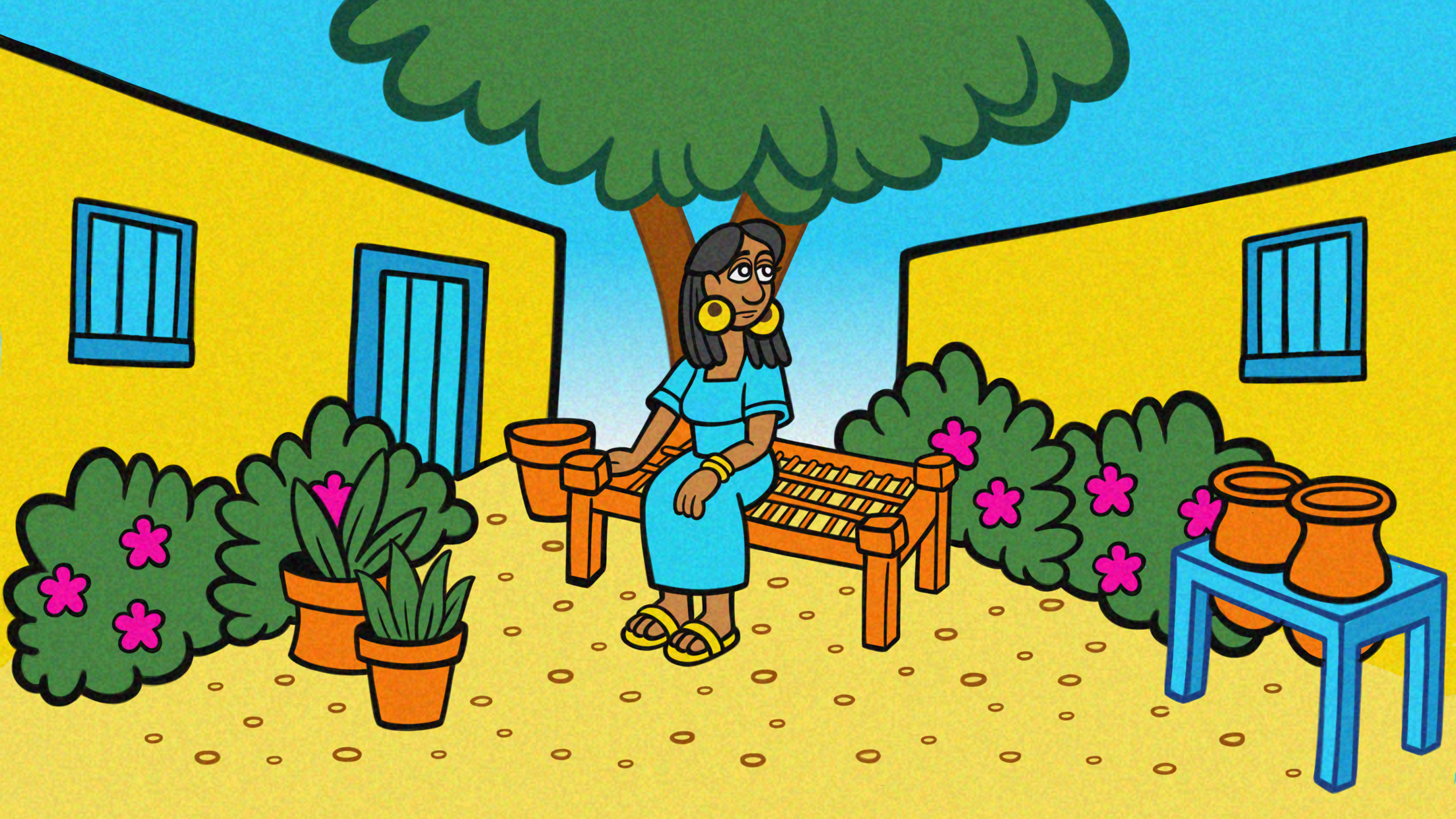
Fatna AlSamha by Waddah AlTahir
War and Preserving Culture
I became a radio journalist because I believe in the power of voice- the way a single story, told with truth and heart, can change perspectives and open worlds. Over the years, I’ve reported hundreds of stories, many on Sudan and the Sudanese diaspora, but throughout my career, something kept nagging at the back of my mind- our folktales.
I kept feeling that, not only should they be known and heard- they should have a global audience. They deserved to be experienced by the world- just like European fairy tales Cinderella and Hansel and Gretel. Just like Aladdin and Sindbad and the 1001 Arabian Nights. Just like African folktales like Anansi the Spider, that were becoming more and more commonly heard around the world.
Few people had written our folktales down- especially in English. There was Kadisa by Rasha Hamid, a children's book written with children. I had books like the seminal ‘Folk Stories from the Northern Sudan’ by the late Arabic professor Dr. Abdalla Eltayeb, and ‘The Clever Sheikh of the Butana’ by Ali Lutfi. But no-one that I know had recorded them in audio format for a global audience- and that, I decided, would be my goal.
So, over the years, I would gather stories from my mother, my aunts, my uncle. Just here and there, just now and then to build up the project. At this same time, I started telling my family’s stories to my students at our community Sudanese school- in a hybrid of Arabic and English. They were a hit with this young generation of Sudanese diaspora kids!
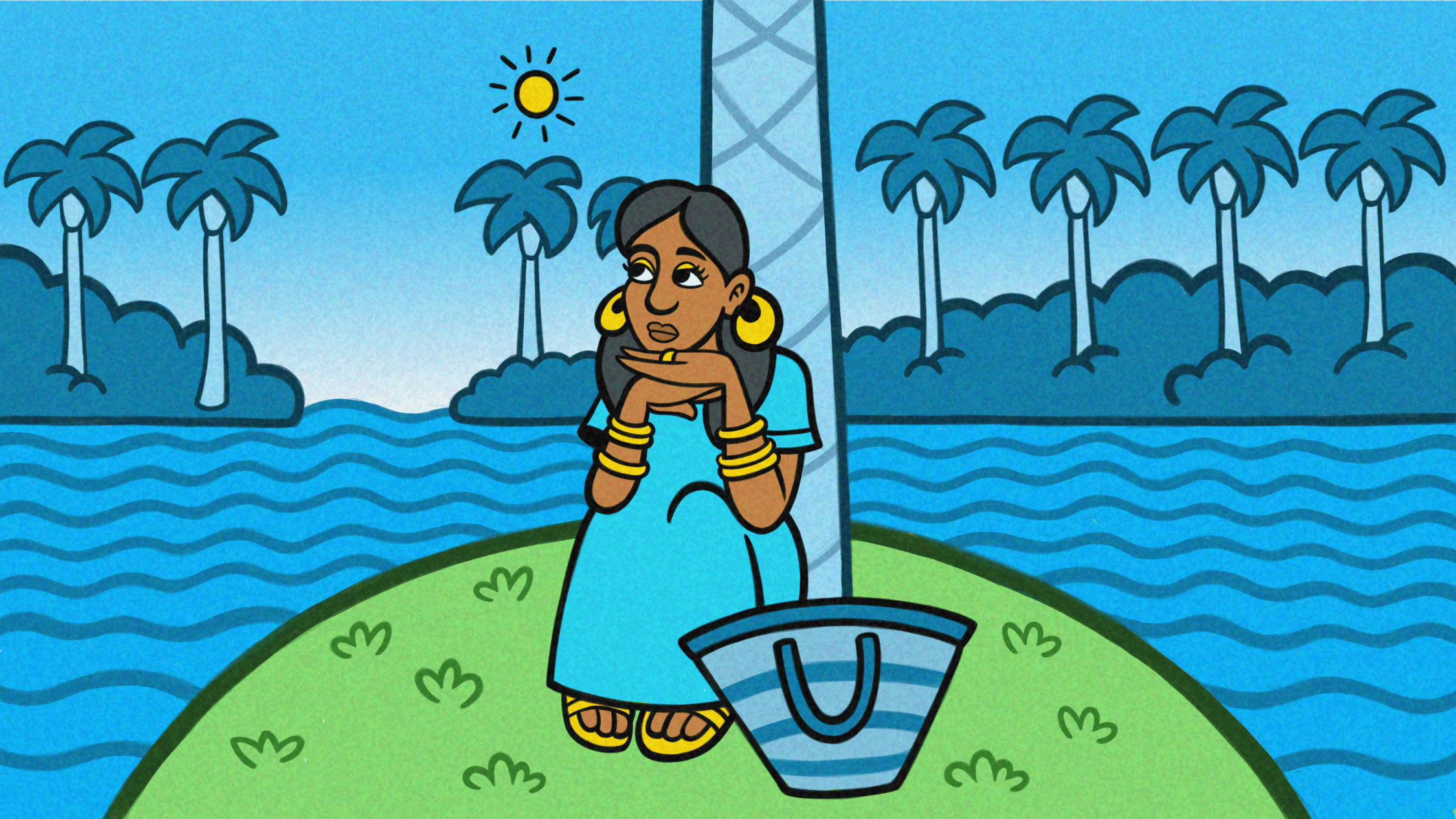
AlHadeeya by Waddah AlTahir
But when war erupted in Sudan in April 2023, I knew I had to do more.
As I saw image after image of Sudan’s cultural institutions being destroyed, video after video of masses fleeing the war to safety in other countries, as I heard of elders passing as they reached safety in neighboring countries, the urge to preserve grew stronger.
Like millions of others, my grandmother’s house, where my uncle told us endless folktales, is empty- as my family fled the violence. My aunt, cousins and yes- Uncle Elbagir- had to pack bags, abandon their homes, and make the dangerous trip leaving the country to safety.
As a person in the diaspora, we often feel helpless when disaster strikes our homelands, our families. There’s an ache, and urge to help, and with me, there was an undeniable impulse to preserve. As I watched other diasporans safeguarding culture in their fields in 'Almarai', sans-serif !important, Kampala, London, New York - the musicians and painters, the clothing designers, the perfumers, the writers and poets- I knew it was time.
Toni Morrison said, "When you know your name, you should hang on to it, for unless it is noted down and remembered, it will die when you do." I felt a fear- that if we didn’t actively preserve these stories, they could disappear forever.
So in April 2024, I dusted off the notebooks I had jotted stories on, and retrieved the audio clips I recorded with my uncle, and started the work. A year later, and nearly two years into this war, the result is here- Folktales from Sudan- a collection of audio folktales I heard from my family.
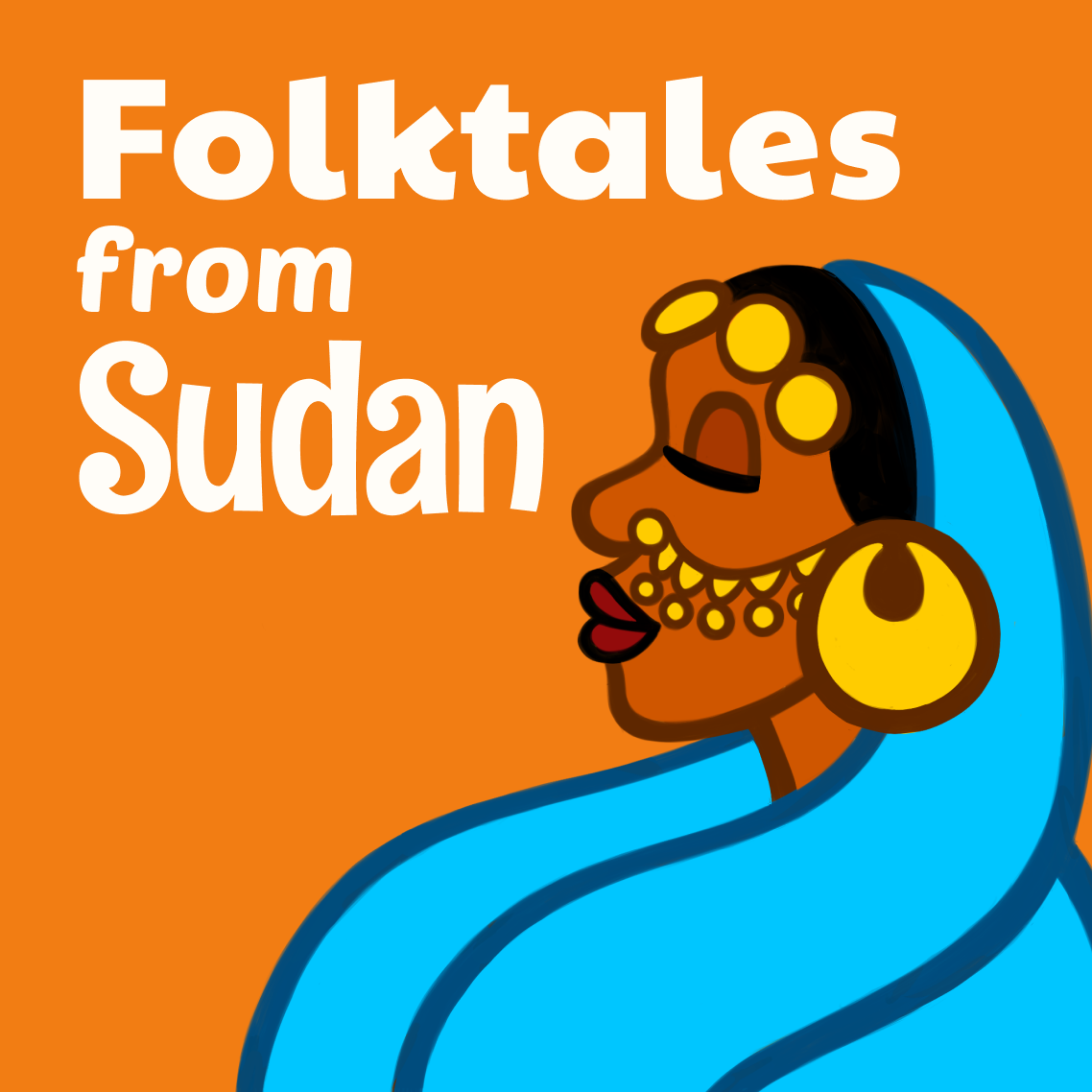
Folktales from Sudan logo. Source: Hanaa Baba
From Kiret the naughty goat, to Fatna who outsmarts the ghoul, to me it’s like a treasure trove filled with precious collective memory. The audio format replicates our traditional oral storytelling experience, and they’re in English so the whole world can get to know a corner of our culture- and know Sudan- away from the narratives of war and poverty that are all too commonly the dominant narrative. Countering the ‘single story’ as Nigerian writer Chimamanda Adichie put it.
And while the stories in this first season come from my family, and my corner of Sudan, my plan is to explore stories from all over the rich and diverse tapestry of Sudanese folk heritage. I’ll be bringing stories from Darfur like ‘Saali Faw Hamar’, to the Nuba mountains, to the East and up to Nubia- interviewing and sourcing from people who hail from those lands. There are so many stories I can’t wait to bring to global ears.
A Gift for Diaspora Sudanese Kids
Deep inside, I wanted these stories to be a gift for the thousands of Sudanese children growing up in the diaspora- kids living in countries where Arabic isn’t the main language, kids who understand and process things faster in English. Kids that were like me, and are like my children. They’ve been separated from life in Sudan, and when it comes to content made for Sudanese children, they’re often forgotten.
There’s plenty of beautiful cultural material out there for Arabic-speaking Sudanese kids, but their siblings in the diaspora miss out because of the language barrier. And that means they’re also missing out on their own heritage. But, they, too, deserve to experience their culture- and in a language they actually understand. That’s why, for the first time, these folktales are being told in a way that mixes English with phrases and terms from the Sudanese Arabic they hear at home. Terms like ‘Izzayakum!’ and ‘haboba’, the characters eat foods they know like ‘bamya’, ‘taameya’ mix the English-Arabic hybrid language of the diaspora.
In this way, Sudanese diaspora kids can share them with their non-Sudanese friends. It helps them take pride in who they are and where they come from- which is so important, especially for kids growing up as minorities in places like the U.S., the U.K., Canada, Europe and Australia.
These are kids who are always looking for Sudanese content to share at school, with their friends, with their teachers. Other cultures have books and stories readily available, but when it comes to Sudan, there’s almost nothing for them to share that their peers would understand. It’s about representation, connection, and making sure our kids and our culture have a place in global conversations.
Record your Elders
If I had one message it would be this: I urge you- whether you are Sudanese or simply someone who believes in the power of culture- to tell our people's stories. Record your elders. Pass down their songs, proverbs and wisdom. If you are an artist, create. If you are a teacher, share our history. If you are a parent, let your children hear the voices of their ancestors.
Sudan is more than a troubled place of conflict. It is a land of poets, musicians, storytellers, and dreamers. And as long as we hold onto our stories, it will never be lost.
